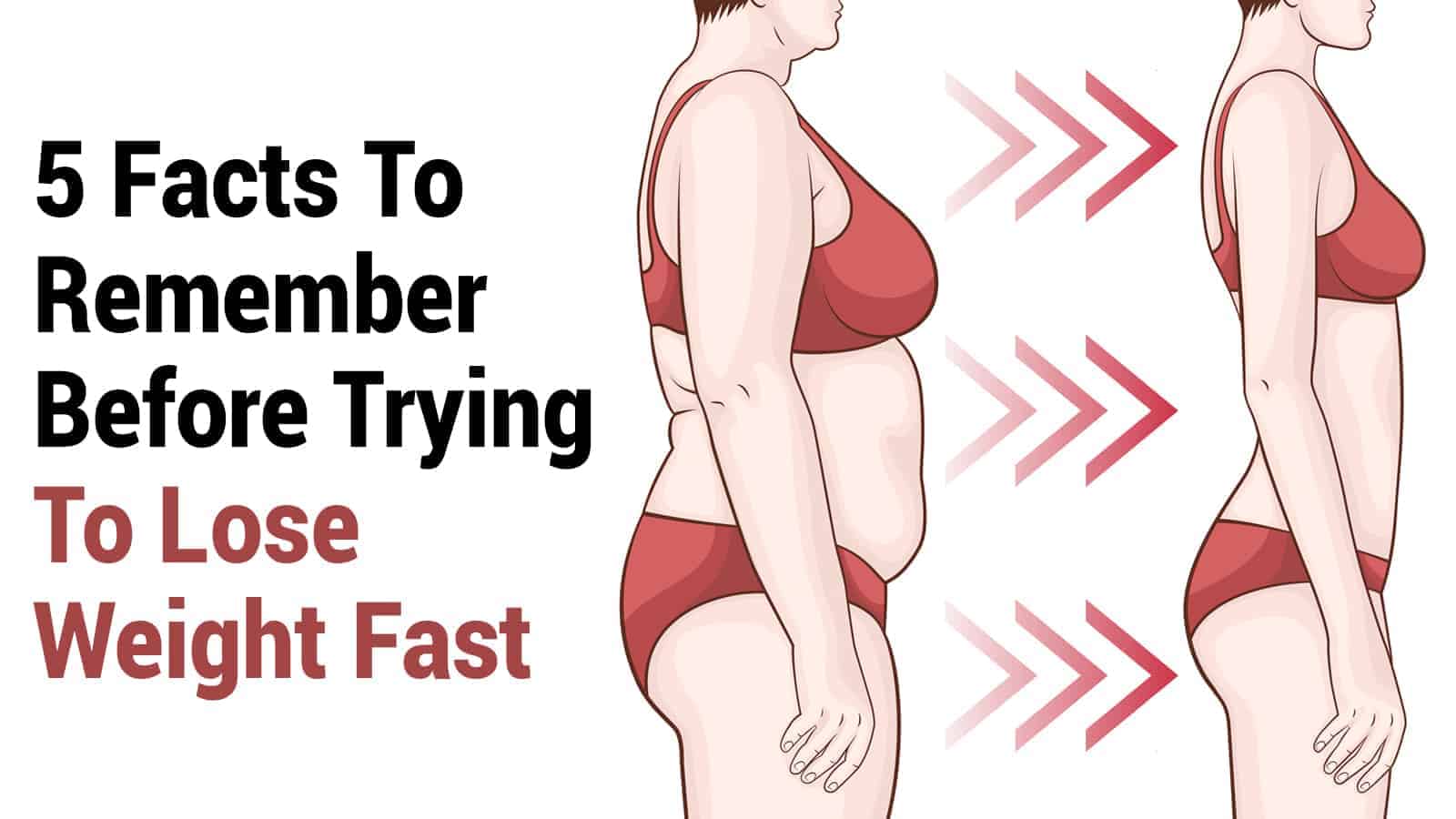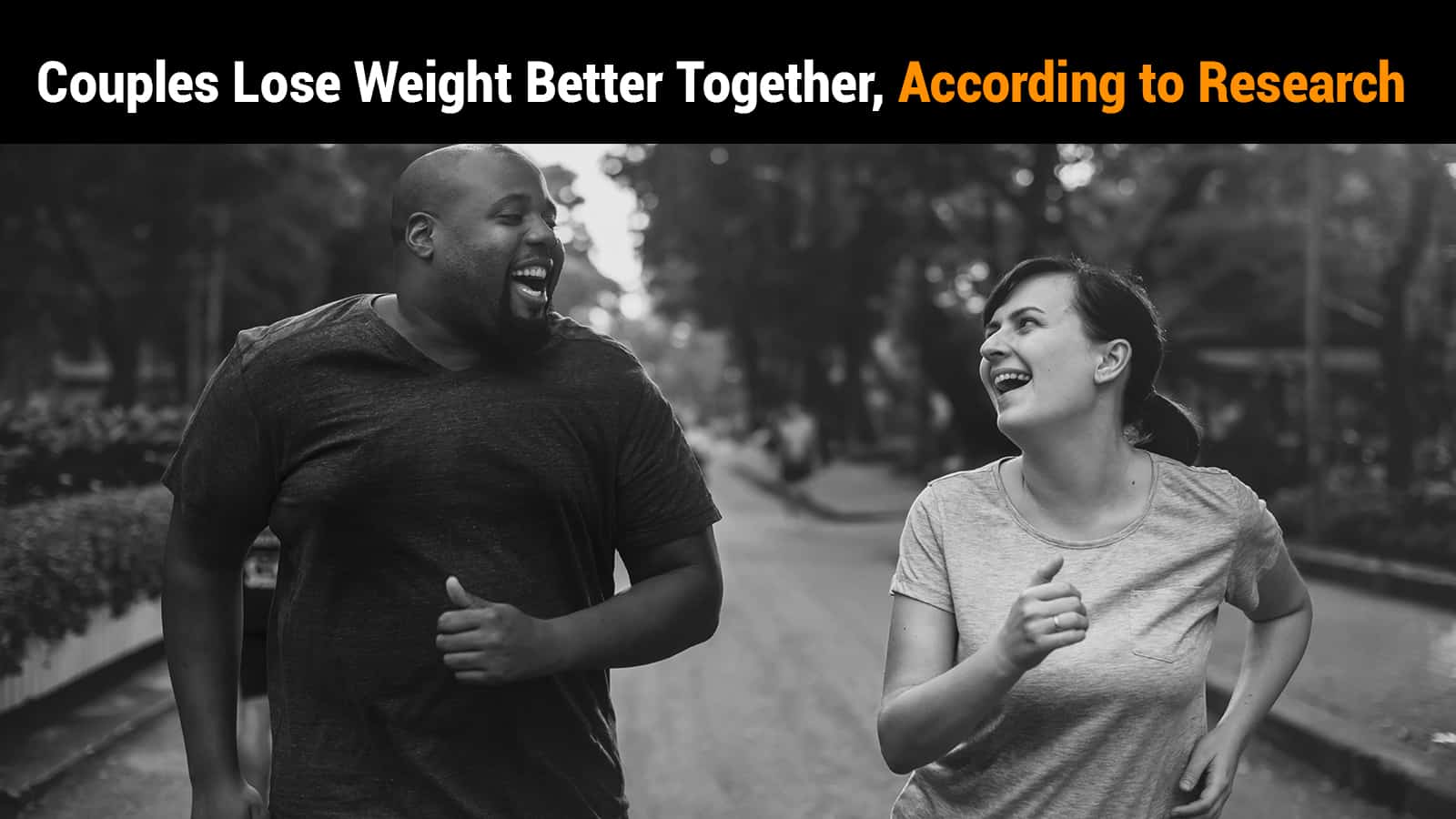You’ve probably seen all sorts of Lose Weight Fast With This Diet! advertisements plastered across social media and as advertisements on all sorts of websites. They’re everywhere, and you can’t avoid them.
If you ever feel tempted to try these quick weight-loss methods, restrain yourself and think, first, of science. Here are 5 facts to keep in mind before trying to lose weight fast.
1. Each Body Is Different
Every single person is unique. Your lifestyle, body type and composition, genetics, and other factors can contribute to how your body stores and loses weight. This means that there’s no such thing as a one-size-fits-all diet, and each person will find that different things work best for them. Here are some things to keep in mind:
· Very Specific Diets May Not Work
Celebrity endorsement, nice write-ups in health magazines, and articles claiming success stories can often make you think that a specific diet is an answer. But of course, since your body is unique, particular options are rarely going to be as useful to you as ones that you can adjust as you go.
· Something That Works For Others May Not Work For You
Do you have a friend who claims that a certain meal plan, dieting style, or even set of healthy weight loss tips helped them? Don’t be discouraged if you don’t see the same results when you follow their advice. Just because something works for someone else doesn’t mean it’s going to work for you.
· It Can Take Time To Find What Works
There are so many different options out there for weight loss, and even when you eliminate the most obviously unhelpful ones, there are still so many left to choose from. It can take a while of experimenting, trying out different methods, and finding foods that you love and work for you before you’re in the running for long-term weight loss. The reality of the matter is that trying to lose weight quickly doesn’t work because of how unique your body is!
2. Fast Diets Are Counterproductive
The thing about fast crash diets is that you’ll probably end up gaining more than you lose – both in terms of weight and overall health. This basically makes them completely counterproductive and hardly worth their effort! Here’s why:
· It’s Not Healthy
Losing a lot of weight in a short amount of time isn’t good for your body. Shedding that many pounds in a short amount of time can mess up your entire system, leaving you feeling even worse than you did before you began. It’s okay to take things slow, and it’s much better to do so!
· It’s Not Sustainable
How long do you really think you can sustain a fad diet? How long can you manage constant hunger pangs? And how many days a week can you devote to your strict eating schedule? It’s simply not doable, and no matter how determined you are, it’s scientifically not going to work out!
· You’ll Gain More Weight In The Long Run
Fad dieting usually leads to weight gain in the future, according to studies. In exchange for a fast shedding of pounds in an unhealthy way, you’ll basically gain it all back and then more later. At the end of the day, it simply isn’t worth it.
3. Fast Diets Can Be Bad For You
Fast diets involve a lot of restrictions on what you eat and how much of it, and they are terrible for you for a litany of reasons. Think about it – the human body needs food to live. Extremely restricting food for the sake of speedy results can’t be good for it, and there are so many causes for this. Here are some of them:
· You Won’t Get The Necessary Nutrients
Fad diets and crash diets that cut many calories quickly usually require a lot of food elimination. The restriction involved forces you to remove a ton of important nutrients from your diet and research shows that a lot of what you lose isn’t worth the briefly shed pounds! The loss of essential macronutrients like carbohydrates and certain minerals and vitamins can lead to illness and decrease energy and immunity.
· It Ruins Your Mood
For a brief moment, starting a restrictive diet can feel pretty good, but that’s only because you’re experiencing the short-term benefits of cutting out unhealthy food from your diet, which you’d get even with more reasonable meal plans. After a little while, you’ll start feeling more irritable, experiencing low energy, and losing positive thinking. As it turns out, feeling “hangry” is a genuine thing, and it can mess up your life!
· You Could Damage Your Organs
It’s shocking to think that weight loss can severely hurt you since most people frame weight loss as always healthy and always good for you. But the reality is that crash diets can very quickly set you up for a significant amount of difficulty. A study even found that low-calorie diets can lead to lowered cardiovascular function, causing worsened heart health. Yikes!
4. Long-Term Discipline Is What Wins The Day
Losing weight fast may not be “easy,” but it sure is much easier than maintaining healthier eating habits and exercise routines over a long period of time. That’s why so many people are so lured in by the idea of fast weight loss. You only need to stay disciplined for a short time. The problem, of course, is that crash diets don’t work.
Long-term discipline is the only real way to achieve long-term weight loss. If you want the weight you work off to stay off, you have to make lifestyle changes that you sustain over the course of, well, the rest of your life! Here are some tips for weight loss and that long-term willpower:
· You Need Internal Motivation
Yes, you may be motivated by the idea of looking more like an influencer you follow, or by the idea of social acceptance, or by the ability to fit into a cute dress you used to wear all the time. But these forms of motivation are external, and they’re not going to sustain you because your self-worth will depend on these external factors.
If you don’t have that influencer’s body type and money, you’re going to be discouraged when you don’t get their look. If people don’t offer you social acceptance, you’ll feel bad about yourself and your journey. So if you still can’t wear that dress, you’re going to wonder if it’s worth it. Take some time to find intrinsic motivation. Ask yourself: why do you want to lose weight? What health benefits would you gain? How would you feel if you got there?
· You Have To Be Realistic
You need to know where your limits are and what you can feasibly sustain. For example, if you hate cooking, you need to set realistic goals about how often you’ll cook and dine out at a healthy food place. Or, if you work ridiculously long hours, you need to adjust your exercise schedule to work with the energy levels you have to spare. If your plan, from the beginning, is unrealistic, you’re not going to be able to stay disciplined.
· Build On Your Resolve
You need to keep maintaining your goals, coming up with new challenges, and moving forward to stay motivated. Once you hit your main weight loss goal, it can be tough to keep up your discipline, as there’s no more goal to work towards. So find new goals. Do you want to be able to run a marathon? Build a certain muscle to better strength? Break your record for the number of push-ups you can do in a row? Work towards better sleep? Whatever it is, keep moving and keep challenging yourself to stay disciplined and motivated!
5. Certain Foods Help Weight Loss
A lot of people think weight loss means eating less. While you need to control your portions and eat a reasonable number of calories, you still need to eat a good amount to achieve sustainable weight loss.
The problem with losing weight fast is that it cuts many foods, including ones that could help sustainable weight loss, very quickly. Eating healthily is more likely to facilitate permanent weight loss, and if you know what to eat, you’ll be amazed at how many food options you have that are delicious but still healthy and great for your progress! Here are some examples of foods that facilitate weight loss:
· Protein
There is no food more crucial or central to weight loss than protein. It can cut off a lot of your caloric intake while keeping you full, and it boosts your metabolism on top of that! In other words, protein is the most positive macronutrient for weight loss, so make sure you’re not cutting it out. Just eating protein for 25% of your daily calories can make a huge difference!
· Fiber
Fiber keeps you full and helps you naturally control portions, and it can also potentially lead to better long-term control of your weight. It also helps many foods digest, and the fact that it increases satiety means you’ll eat less without losing positive thinking.
· Fruit and Vegetables
This sounds like a no-brainer, but so many fad diets try to get you to cut out fruits because they contain sugar in the form of fructose! These diets don’t say that the high water content, high fiber, and high nutritional value more than outweigh any of those completely healthy, whole sugars. Almost all studies indicate that vegetable and fruit consumption is positive for weight loss.
· Healthy Snacks In General
This fact of life remains simple: you have to eat to live. If you deny yourself food when you’re hungry, you’re only going to open up the risk of binging, losing discipline, or feeling negative mental effects later. The trick, then, is not to eliminate food but to replace unhealthy choices with healthy ones. Swap out your potato chips for unsalted peanuts. Replace your candy bar with a square of dark chocolate—Trade the chocolate chip cookies for apple slices with nut butter. Don’t remove – replace!
Final Thoughts On Some Facts To Keep In Mind Before Trying To Lose Weight Fast
The appeal of quick weight loss is obvious. Unfortunately, it’s just too good to be true. Instead of wasting your time on disappointing fast weight loss methods, focus on long-term, slow-and-steady goals, and you’ll see much better results!

















 Community
Community

